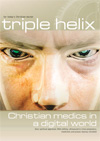Recognising that hard cases make bad law
In February, Northern Ireland Assembly Members debated some highly controversial and emotive amendments to a Justice Bill: amendments to allow for abortion for fatal fetal abnormality, rape and incest.
Unlike the rest of the UK, the Abortion Act 1967 does not extend to Northern Ireland. So most abortions are illegal, except where necessary to preserve the life of the mother, or where there is a risk of real and serious adverse effect on her physical or mental health, which is either long term or permanent. (1) The proposed amendments would have provided further, albeit narrow, exceptions to the ban.
The amendments were actually defeated, but in a fairly close run vote (by 59 votes to 40). Some Members opposed the amendments on procedural grounds, on the basis that they were being rushed through with little Assembly scrutiny. Others held more practical objections based on concerns that, although the proponents argued they would only change the law on fatal fetal abnormality and sexual crime, they would be likely to have a far wider impact. Much like in Great Britain where the term 'serious' in the Abortion Act 1967 is a sufficiently elastic term to allow unborn babies to be aborted for conditions that most people would not regard as constituting 'serious' handicap. Moreover, from a practical perspective, it is difficult to see how a law permitting abortion after rape or from sex with a family (or 'extended' family) member, could be framed.
Other Members had ethical concerns with permitting abortion for fatal fetal abnormality, on the grounds that all human life is worthy of protection and that a baby with a serious disability, however life limiting, requires no less protection and respect than any other human being nearing the end of their life. It was also argued that abortion of a baby with disability is not an 'easy answer' as it is generally a traumatic event and can have psychological effects lasting many years. Testimonies were cited from parents of children with fatal fetal abnormalities who kept their children and appreciated the few hours, days and sometimes weeks and months, that they had with their children.
A centre in Northern Ireland, Every Life Counts, provided some positive and moving stories from parents of such experiences. (2) It is well worth a visit. And, prompted by these NI debates, we have a a post on the CMF blog covering in more detail some of the dilemmas and challenges of these 'hard cases' of abortion for disability and rape. (3)
There is no denying that such amendments raise really difficult issues that must be handled with tremendous grace and sensitivity but we are thankful that, at least for now, all babies with disability are still protected by the law in Northern Ireland. As CMF often points out, hard cases are indeed hard. However, jettisoning fundamental principles of protecting the life of individuals, especially vulnerable ones - the young, the severely disabled - is not the answer.
































